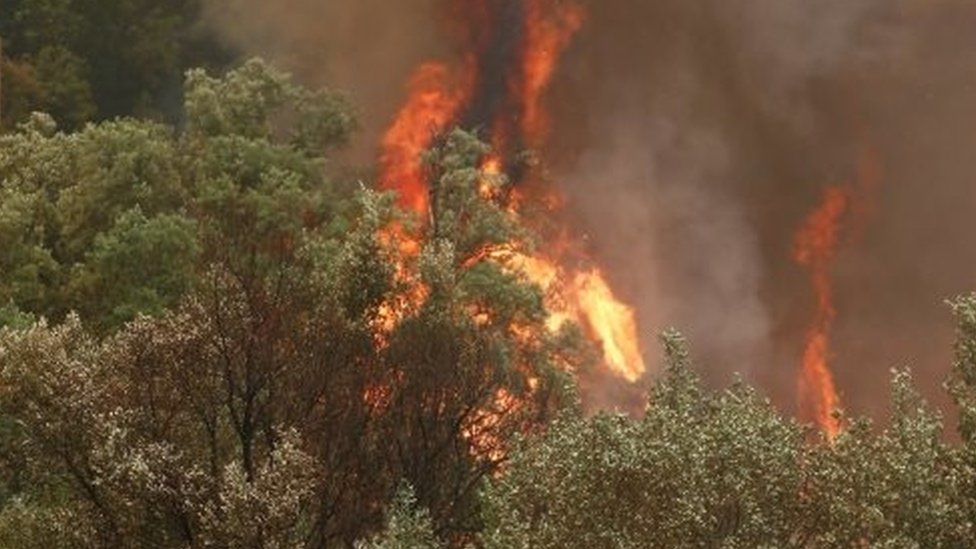Portugal fires: Confusion over plane crash claim
- Published

Reports that a firefighting plane crashed during an operation to tackle huge blazes in central Portugal have been denied by the country's civil protection authority.
This contradicts earlier reports that a Canadair aircraft went down near the central Pedrógão Grande area.
More than 1,000 firefighters on the ground and planes from several countries are battling the fires.
The fires have claimed the lives of at least 64 people since Saturday.
Many of the victims died in their cars as they tried to escape.
More than 130 people have been injured.
Civil protection officials have said they expect the blazes to be under control soon, but warn that soaring temperatures are hampering efforts.
The week's highest temperatures in the area are expected to reach about 38C (100F) and, together with windy conditions, could reignite fires that have already been brought under control.
Why are Portugal's wildfires so deadly?
Wildfires are an annual menace in Portugal. More broke out there between 1993 and 2013 than in Spain, France, Italy or Greece, the European Environment Agency reported last year, despite the country's relatively small geographical size.
Gareth Roberts: 'You could hear the roar of the fire coming... we just sat and waited to die'
Given that, was this year's tragedy preventable? Could Portugal have done anything more to save lives and minimise the damage?
Read more: Just what makes Portugal such a tinderbox?
One of the worst-hit areas was around the village of Nodeirinho. Thirty bodies were found inside cars and another 17 next to vehicles on the N-236 road.
Portuguese media have dubbed the N-236 the "road of death".
Portuguese Prime Minister Antonio Costa has questioned why the emergency services did not close the road.
- Published19 June 2017
- Published18 June 2017
- Published19 June 2017
- Published18 June 2017